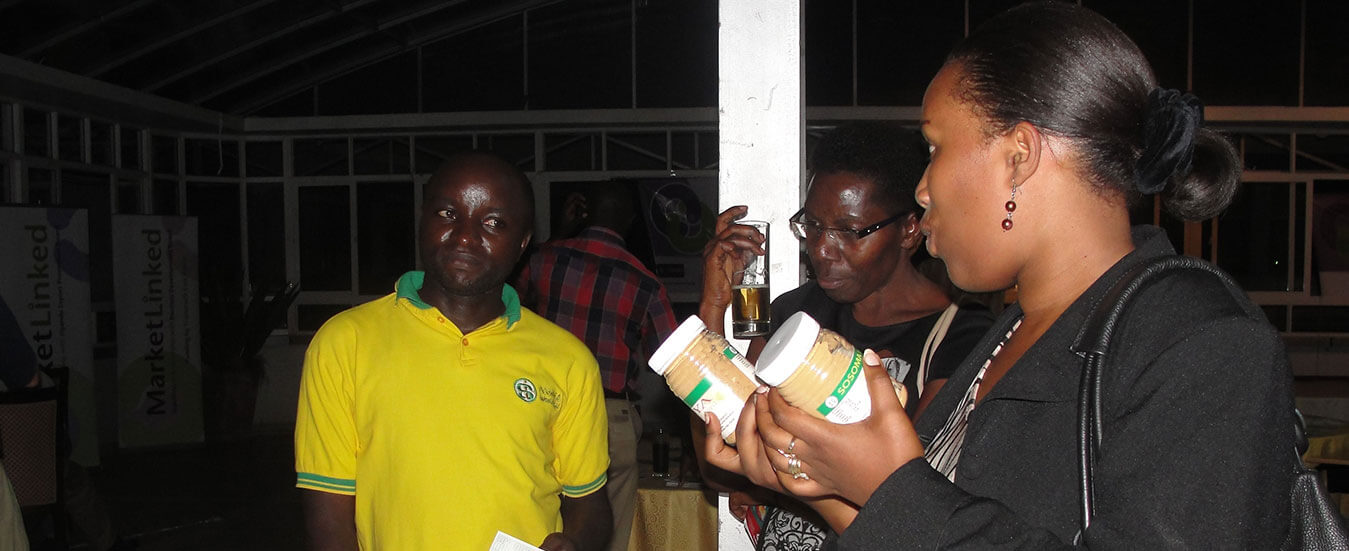- 16 Rwandan companies register USD$18M growth in export values after undergoing training programme
- The programme has been integrated into the Rwandan National Export Strategy
- TMA invested USD$1.4m in implementing the initiative that trained 16 companies to prepare and implement export plans
Kigali, 11 August 2016: A TradeMark Africa (TMA) funded initiative to increase trade flows has boosted Rwanda’s export capacity of select companies in Rwanda. Out of the a target of 16 companies, 13 now export outside Rwanda, thus contributing to increased Rwanda exports to the rest of the EAC. Some of the companies that were able to export out of Rwanda include chalk producer G-Mart and food manufacturer SOSOMA.
Rwanda Development Board (RDB) implemented the export development programme through the Irish firm Traidlinks between 2013 to 2015. It was funded by TMA to a tune of US$1.4 million.
To ensure sustainability, RDB has integrated the approach into the Rwanda Export Development Strategy as a way of making Rwandan companies export-ready.
Six local consultants were engaged to train the 16 companies on how to prepare and implement export plans. TMA shares its key lessons learned as the fact that skills transfer and mentoring promotes and builds capacity and confidence of exporters, which keeps them sustainable in the export markets. Existence of institutional frameworks and collaboration by the RDB and implementation partners keeps the programme sustainable. The organization further urges Rwanda to develop a competitive private sector with capacity to compete and export value added products to the EAC markets and beyond, in order to develop and transform their economy and to meet their ambitious development goals.
Commenting on the programme, TMA Chief Executive Officer, Frank Matsaert said: “The results from the export development programme is demonstrable proof that our investment of productive capacities and improving export promotion strategies by producers and exporters is critical to growing trade in the region.”
Other partners that were involved in the programme include Kigali Independent University, private export companies, local business consultants and relevant private sector stakeholders.
According to TMA, export development is an important foundation especially for countries that have a multitude of small and medium enterprises. Ensuring that the firms find access to new markets and ensuring that they are export-ready will increase trade flows within the region and beyond.
For media enquiries, please contact:
Elisha Kamau | [email protected]
Nelson Karanja| [email protected]
About TradeMark Africa
TradeMark Africa (TMA) is a not for profit trade specialist organisation funded by a range of development agencies with the aim of growing prosperity in East Africa through trade. TMA works closely with East African Community (EAC) institutions, national governments, the private sector and civil society organisations. TMA seeks to increase trade by unlocking economic potential through 3 main strategic objectives:
- Increasing physical access to markets;
- Enhancing trade environment; and
- Improving business competitiveness.
Increased trade contributes to increased economic growth, a reduction in poverty and subsequently increased prosperity. TMA has its headquarters in Nairobi with branches in Arusha, Bujumbura, Dar es Salaam, Juba, Kampala and Kigali. To find out more please visit the TMA website at www.trademarkea.com
TradeMark Africa (TMA) is an aid-for-trade organisation that was established with the aim of growing prosperity in East Africa through increased trade. TradeMark Africa (TMA) operates on a not-for-profit basis and is funded by the development agencies of the following countries: Belgium, Canada, Denmark, Finland, the Netherlands, UK, and USA. TradeMark Africa (TMA) works closely with East African Community (EAC) institutions, national governments, the private sector and civil society organisations.















